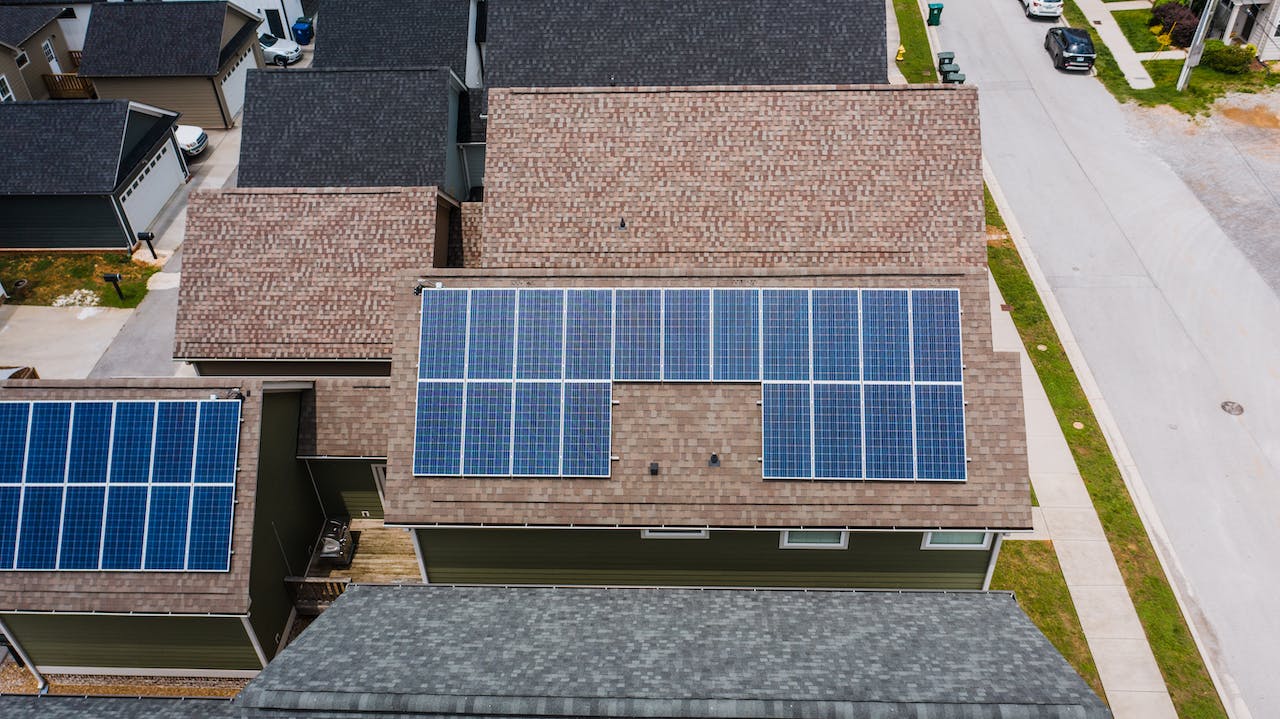The Benefits of Residential Solar Panels
Firstly, in the quest for cleaner, more sustainable energy solutions, residential solar panels have emerged as a beacon of hope and efficiency. Therefore as the world grapples with the urgent need to reduce carbon emissions and halt climate change, homeowners are increasingly turning to solar power systems as a viable alternative to traditional fossil fuels. This article delves into the numerous benefits of residential solar panels, demonstrating how they not only contribute to a greener planet but also offer substantial financial and practical advantages for property owners.
Table of Contents for Easy Navigation
- The Environmental Impact: A Leap Towards a Greener Planet
- Financial Benefits: A Wise Economic Choice
- Energy Independence: Empowering Homeowners
- Long-Term Savings and Incentives: Maximizing Your Investment
- Sustainability and Reliability: The Dual Promise of Solar Energy
- Environmental and Health Benefits: A Cleaner and Healthier World
- Adapting to Solar Energy: Understanding the Transition
- Integrating Solar Energy: Practical Considerations for Homeowners
- The Economic Impact of Solar Panels: Beyond Personal Savings
- Navigating Challenges and Misconceptions
- The Future of Solar Energy: Trends and Innovations
- Enhancing Home Aesthetics and Appeal with Solar Panels
- Community Impact and Social Responsibility
- Solar Energy: Balancing Pros and Cons
- 5 FAQs About The Benefits of Residential Solar Panels
- Benefits of Residential Solar Panels Conclusion: Embracing the Solar Revolution
The Environmental Impact: A Leap Towards a Greener Planet
1. Reduction in Carbon Footprint and Greenhouse Gas Emissions
One of the most significant benefits of solar panels is their ability to drastically reduce the carbon footprint of a household. Thus by harnessing the sun’s energy, solar panel systems negate the need for electricity generated from fossil fuels like coal and natural gas. This shift not only minimizes greenhouse gas emissions but also contributes to a healthier environment. In fact, according to the U.S. Energy Information Administration, the average household solar system can reduce carbon emissions by approximately 5,000 pounds annually, which is a substantial step towards combating climate change.
2. Contribution to Clean Energy Transition
Solar energy is a cornerstone of the transition to clean energy. Hence, by opting for a solar energy system, homeowners directly contribute to reducing their reliance on non-renewable energy sources. This shift is essential for mitigating the environmental impact of energy production, such as water pollution and air pollution.
Financial Benefits: A Wise Economic Choice

1. Reduction in Energy Costs and Electric Bills
One of the most immediate benefits of installing a solar panel system is the significant decrease in energy costs. By generating their own electricity, homeowners can significantly reduce, if not eliminate, their monthly electric bills. As a result over time, the savings can be substantial. For example, studies by Lawrence Berkeley National Laboratory have shown that solar-powered homes can save thousands over the lifetime of the system.
2. Increase in Home Value
Investing in a solar panel system can also lead to an increase in home value. Prospective home buyers are often willing to pay a premium for homes equipped with solar panels due to the long-term energy savings they offer. This increase in property value is a compelling reason for many homeowners to consider solar installation.
Energy Independence: Empowering Homeowners
1. Less Reliance on Utility Companies
Solar panels provide homeowners with a unique opportunity to achieve energy independence. Indeed, by generating their own electricity, they are less reliant on local utility companies and can avoid the volatility of energy prices. This autonomy is especially beneficial during power outages or in regions with unreliable electricity supply.
2. Utilizing Net Metering to Maximize Benefits
Net metering policies allow homeowners with solar panel systems to feed excess energy back into the electric grid, often receiving credits on their utility bills in return. This system ensures that no solar energy goes to waste, providing an additional financial incentive for solar adoption.
Benefits of Residential Solar Panels Conclusion (so far)
The benefits of residential solar panels extend far beyond their environmental impact. They represent a smart financial investment, increase energy independence, and contribute to a sustainable future. As we delve deeper into these advantages, it becomes evident why solar energy is not just a trend but a necessary shift towards a greener and more resilient world.
Long-Term Savings and Incentives: Maximizing Your Investment
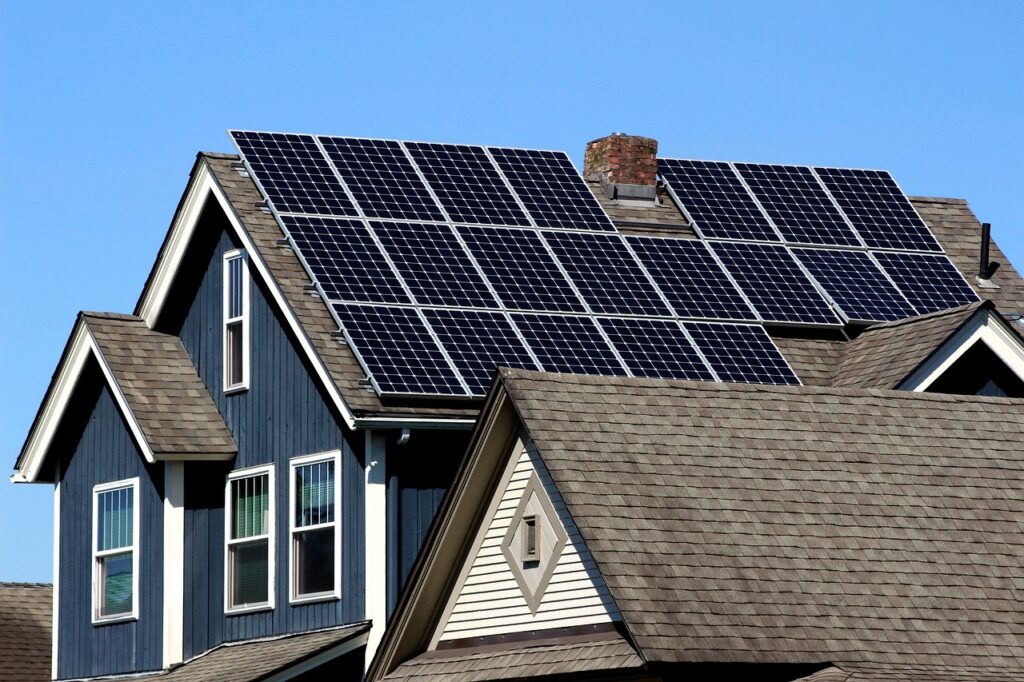
1. Long-Term Energy Savings
One of the most compelling reasons to invest in a residential solar panel system is the promise of long-term energy savings. While the initial investment in solar technology, including the solar PV system and installation costs, might seem substantial, the cumulative savings on energy bills over time are significant. Therefore homeowners can expect to see a reduction in their monthly electricity costs, which over several years can amount to thousands of dollars saved. Thus this long-term financial benefit is a key factor driving the adoption of solar energy across the United States.
2. Federal and Local Financial Incentives
To encourage the adoption of renewable energy sources, various financial incentives are available to homeowners. The federal solar tax credit, also known as the Investment Tax Credit (ITC), allows property owners to deduct a percentage of their solar panel installation costs from their federal taxes. Additionally, many local governments and utility companies offer solar incentives, rebates, and solar renewable energy credits. These incentives not only reduce the upfront cost but also enhance the overall return on investment for solar panel systems.
Sustainability and Reliability: The Dual Promise of Solar Energy
1. Consistent Energy Source and Protection Against Power Outages
Solar panels offer a reliable source of energy. The sun’s energy, unlike fossil fuels, is abundant and consistently available during daylight hours. This consistency ensures a steady supply of electricity, which is particularly beneficial in areas prone to power outages. Furthermore, with advancements in solar technology, such as battery storage systems, homeowners can store excess solar energy for use during nighttime or cloudy days, providing an uninterrupted power supply.
2. Low Maintenance Costs and Durability
Another benefit of residential solar panels is their low maintenance costs. Solar systems are known for their durability and require minimal upkeep. Routine cleaning and occasional inspections are generally all that is needed to keep a solar system running efficiently. This aspect of solar energy systems makes them an even more attractive option for homeowners looking for a low-maintenance energy solution.
Environmental and Health Benefits: A Cleaner and Healthier World

1. Reducing Air and Water Pollution
Solar panels contribute significantly to reducing air and water pollution. By decreasing reliance on fossil fuels, they help in lowering the emission of harmful pollutants like carbon dioxide and other greenhouse gases. This reduction in air pollution can have a direct positive impact on public health, particularly in reducing respiratory and cardiac health issues. Additionally, solar energy production does not involve water, thereby reducing water pollution and conserving this vital resource, unlike traditional energy sources such as coal and natural gas plants.
2. Mitigating Climate Change and Its Effects
The adoption of solar energy is crucial in the global fight against climate change. By reducing greenhouse gas emissions, solar panels help in slowing down the rate of climate change, thereby mitigating its adverse effects on ecosystems and human health. This positive environmental impact is a compelling reason for many environmentally conscious homeowners to switch to solar energy.
Adapting to Solar Energy: Understanding the Transition
1. Overcoming the Initial Investment
While the benefits of solar panels are numerous, homeowners often face the challenge of the initial investment. The upfront cost of purchasing and installing a solar panel system can be substantial. However, with various financing options available, such as solar loans, solar leases, and power purchase agreements, this barrier is becoming increasingly surmountable. These financial solutions enable homeowners to enjoy the benefits of solar energy without the burden of a large initial expense.
2. Navigating the Solar Industry and Choosing the Best Solar Panels
The solar industry has grown significantly, offering a wide range of products and services. For new adopters, navigating this industry and choosing the best solar panels can be daunting. Homeowners need to conduct thorough research, consult solar energy experts, and compare different solar panel options to find the most suitable solution for their needs.
Benefits of Residential Solar Panels Conclusion (so far)
The journey into the world of solar energy reveals a path laden with financial savings, environmental stewardship, and enhanced energy independence. As we continue to explore the myriad benefits of residential solar panels, it becomes evident that this technology is not just a luxury but a necessity for a sustainable future. Embracing solar energy is a proactive step towards a cleaner, healthier, and more economically sound living environment.
Integrating Solar Energy: Practical Considerations for Homeowners
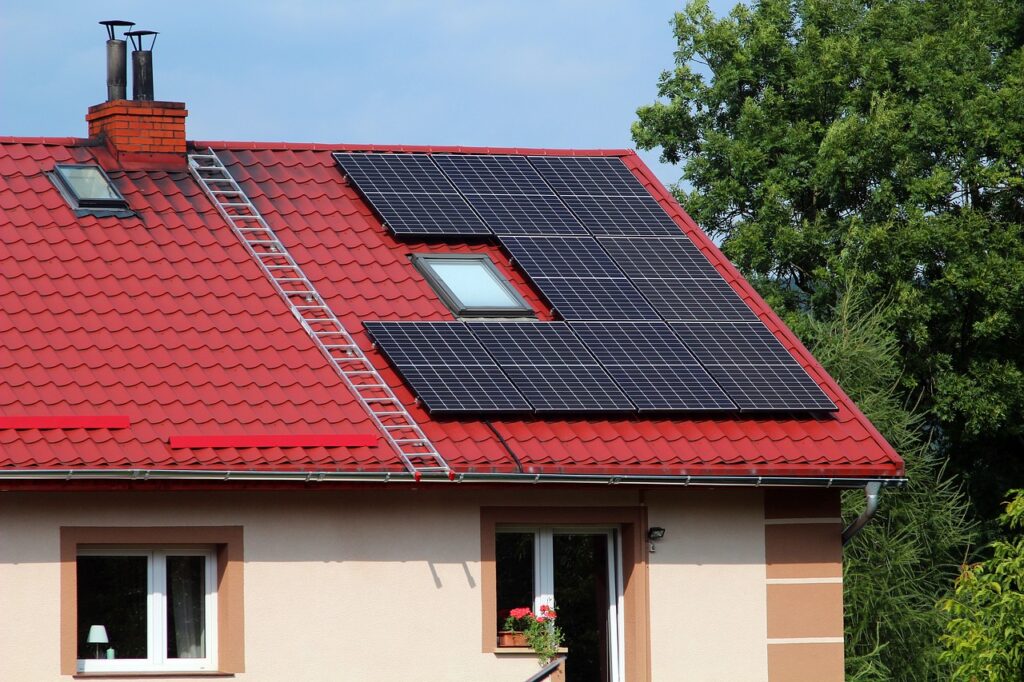
1. Assessing Home Suitability for Solar Panels
Before embarking on the solar journey, homeowners must assess the suitability of their homes for solar panel installation. Factors such as roof condition, orientation, shading, and local climate play a crucial role in determining the efficiency of a solar power system. Professional solar companies can provide detailed evaluations to ensure a home is a good candidate for solar panel installation. This assessment helps in maximizing the benefits of solar energy while avoiding unnecessary complications.
2. Understanding the Solar Installation Process
The process of solar panel installation involves several steps, from initial consultation and site assessment to installation and grid connection. Homeowners should familiarize themselves with this process to set realistic expectations and timelines. Working with reputable solar companies ensures a smooth installation experience, with experts handling permits, inspections, and coordination with local utility companies.
The Economic Impact of Solar Panels: Beyond Personal Savings
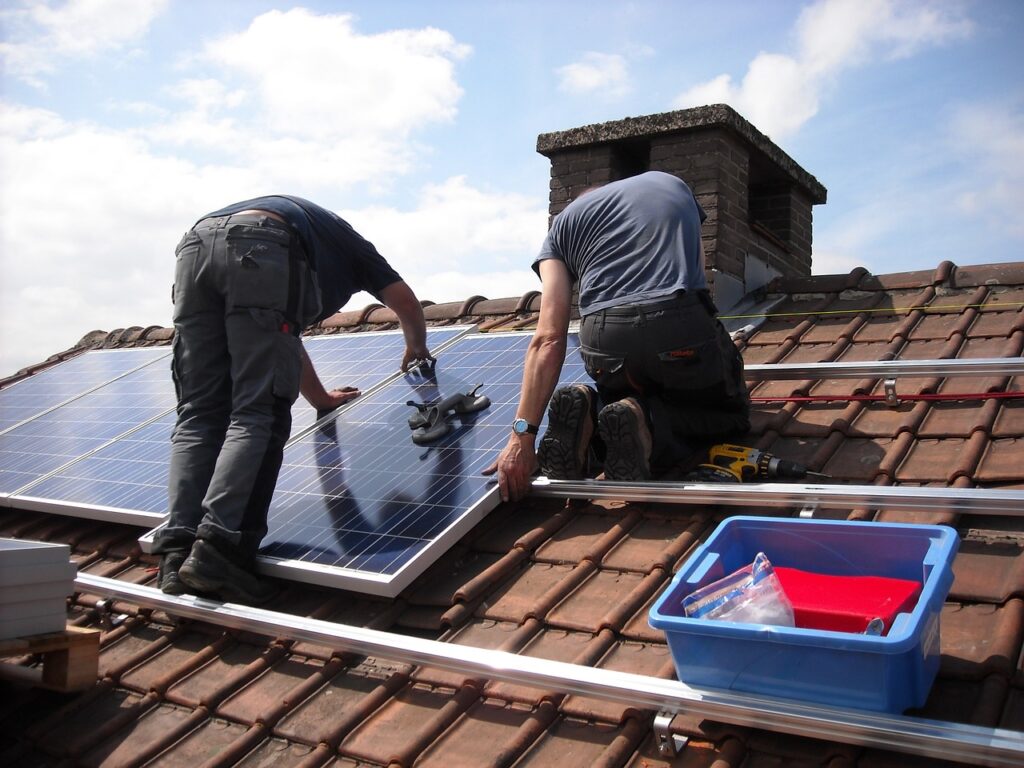
1. Boosting Local Economies and Job Creation
The growth of the solar industry has a positive impact on local economies. As demand for solar panels increases, so does the need for skilled labor in the solar sector, leading to job creation in manufacturing, installation, and maintenance. This economic stimulus extends beyond individual savings, contributing to broader community prosperity.
2. Impact on the National Energy Market
Residential solar panels also influence the national energy market. By reducing the overall demand for energy from traditional sources, solar systems help in lowering energy prices for everyone. This shift towards renewable energy sources also drives innovation and investment in cleaner technologies, paving the way for a more sustainable energy future.
Navigating Challenges and Misconceptions

1. Addressing Common Misconceptions About Solar Energy
Despite the many advantages, some misconceptions about solar energy persist. Concerns about the efficiency of solar panels in cloudy weather or misconceptions about the complexity of maintenance can deter potential adopters. It’s important to address these concerns with accurate information and data. For instance, solar panels can still generate electricity on cloudy days, albeit at a reduced rate, and modern solar systems are designed for low maintenance and high durability.
2. Overcoming Challenges and Limitations
While solar energy has numerous benefits, it’s not without its challenges. The variability of solar energy production, dependence on weather conditions, and the need for energy storage solutions are some of the limitations that homeowners may face. However, ongoing advancements in solar technology, such as more efficient solar cells and improved battery storage systems, are continually addressing these challenges.
The Future of Solar Energy: Trends and Innovations

1. The Benefits of Residential Solar Panels: Advances in Solar Technology
The solar industry is at the forefront of technological innovation. Advances in solar cell efficiency, the development of flexible and integrated solar solutions, and improvements in energy storage technologies are set to revolutionize the way we harness solar energy. These innovations promise to make solar systems more efficient, affordable, and adaptable to diverse housing types and environments.
2. The Role of Solar Energy in Shaping a Sustainable Future
As the world moves towards a more sustainable future, solar energy is poised to play a pivotal role. Its potential to reduce carbon emissions, lower energy costs, and provide energy independence aligns with global efforts to combat climate change and promote environmental stewardship. The increasing adoption of solar energy is a clear indication of its integral role in shaping a greener, more sustainable world.
Benefits of Residential Solar Panels Conclusion (so far)
Exploring the benefits of residential solar panels uncovers a world of opportunity for homeowners and the planet alike. From significant financial savings and environmental benefits to contributing to local and national economies, the advantages are clear. While there are challenges and misconceptions to navigate, the future of solar energy is bright, with ongoing advancements promising to enhance its accessibility and efficiency. As we embrace solar energy, we step into a future that values sustainability, innovation, and a healthier planet.
Enhancing Home Aesthetics and Appeal with Solar Panels
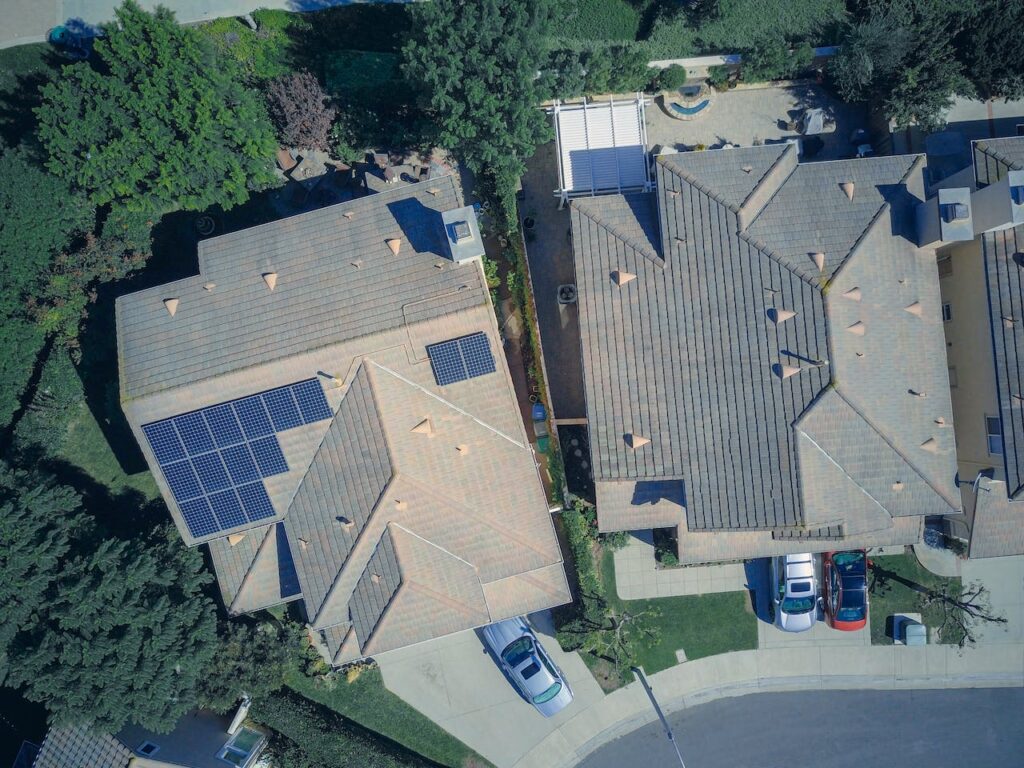
1. Modern Solar Design and Curb Appeal
Solar panel installation is not just about functionality but also an aesthetic choice. Modern solar panels are sleek, and unobtrusive, and can enhance a home’s curb appeal. With various design options available, including rooftop and ground-mounted systems, homeowners can choose a style that complements their home’s architecture. The visual appeal of solar panels, combined with their environmental and financial benefits, makes them an attractive feature for many home buyers, potentially increasing the value of your home.
2. Integration with Smart Home Technology
Solar energy systems can seamlessly integrate with smart home technology, allowing homeowners to monitor and manage their energy use efficiently. This integration not only provides convenience but also maximizes the efficiency of the solar panel system. Smart technology can optimize energy consumption, track solar production, and even control home appliances to utilize solar energy effectively.
Community Impact and Social Responsibility
1. Fostering a Community Culture of Sustainability
The adoption of residential solar panels goes beyond individual benefits; it fosters a community culture of sustainability. As more homeowners install solar panels, it encourages others to follow suit, creating a ripple effect that promotes environmental consciousness at a community level. This collective action is crucial in addressing broader environmental issues like climate change and air pollution.
2. Contributing to National Energy Goals
On a larger scale, residential solar systems contribute to national energy goals focused on reducing carbon emissions and increasing the use of renewable energy sources. By choosing solar energy, homeowners are participating in a nationwide effort to transition towards a cleaner, more sustainable energy future, aligning with federal initiatives and environmental policies.
Solar Energy: Balancing Pros and Cons

1. Weighing the Benefits Against the Disadvantages
While the benefits of solar panels are numerous, it’s important to consider their disadvantages. The initial cost, dependence on sunlight, and space requirements are some factors that homeowners need to contemplate. However, when balanced against the long-term savings, environmental benefits, and technological advancements, the advantages of solar energy often outweigh its cons for many property owners.
2. Making an Informed Decision
Choosing to install solar panels is a significant decision that requires careful consideration. Homeowners should evaluate their specific circumstances, including financial situation, energy needs, and geographic location, to make an informed choice. Consulting with solar energy experts and conducting thorough research can aid in this decision-making process.
5 FAQs About The Benefits of Residential Solar Panels
How do residential solar panels impact electricity bills?
Residential solar panels can significantly reduce your electricity bills. By generating your own power, you use less from the grid, which directly reduces your monthly energy expenses. In some cases, if your system produces more electricity than you use, you might even receive credits from your utility company.
What environmental benefits do solar panels offer?
Solar panels are a clean and renewable energy source. They reduce reliance on fossil fuels and decrease greenhouse gas emissions. By using solar power, a typical household can significantly lower its carbon footprint, contributing to a healthier environment.
Benefits of Residential Solar Panels
Do solar panels increase property value?
Yes, installing solar panels can increase your property’s value. Homes with solar energy systems often sell for a higher price than homes without them. This is because future homeowners will benefit from lower electricity costs, making these homes more attractive in the real estate market.
How do solar panels affect energy independence?
Solar panels contribute to energy independence both on a personal and national level. By generating your own electricity, you become less dependent on the grid and more resilient to power outages and increasing energy prices. This also helps reduce national dependence on imported fossil fuels.
Are there any financial incentives for installing solar panels?
Many regions offer financial incentives for solar panel installation. These can include tax credits, rebates, and feed-in tariffs for the surplus energy you generate. These incentives not only lower the initial cost of installation but also improve the return on investment over time. It’s advisable to check with local authorities for specific incentives in your area.
Benefits of Residential Solar Panels Conclusion: Embracing the Solar Revolution
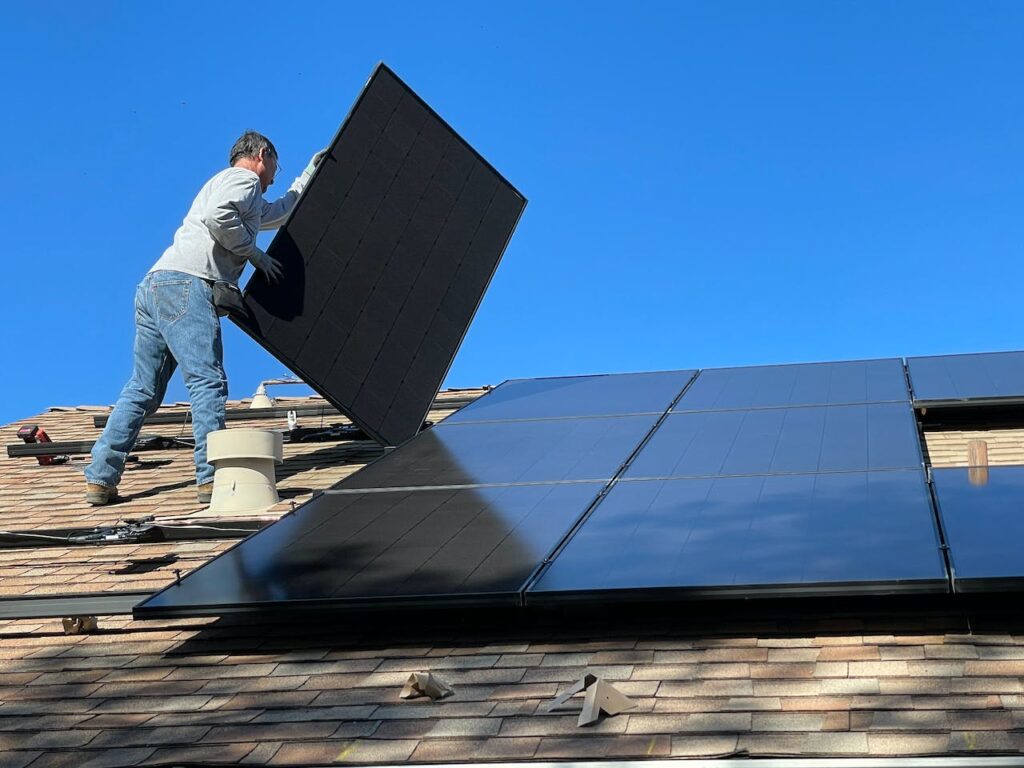
The exploration of the benefits of residential solar panels reveals a compelling case for their adoption. From reducing our carbon footprint and fossil fuel dependence to enjoying substantial financial savings and increasing property value, the advantages are multifaceted. Solar panels represent not just a step towards personal energy independence but also a commitment to a sustainable and healthier planet.
As solar technology continues to evolve, the barriers to entry, such as upfront cost and efficiency concerns, are rapidly diminishing. With the support of government incentives, advancements in solar technology, and a growing awareness of environmental issues, solar energy is becoming increasingly accessible and attractive.
Benefits of Residential Solar Panels
In conclusion, the benefits of residential solar panels are clear and wide-ranging. In fact, they offer a practical solution to the challenges of climate change, energy costs, and sustainable living. By embracing solar energy, homeowners can play an active role in shaping a brighter, cleaner future for themselves and generations to come.
Thank you for reading to the end of the benefits of residential solar panels, if you have found it helpful please consider sharing it, so that others may benefit from it.
Recent Posts
Understanding Energy and Electricity: The Power For Progress
Energy and Electricity Energy and electricity are integral components of modern life, powering everything from homes and businesses to transportation and communication. Without them, the...
The Future of Wind Energy The future of wind energy is set to play a critical role in addressing global energy needs while combating climate change. As renewable energy sources like wind and...


